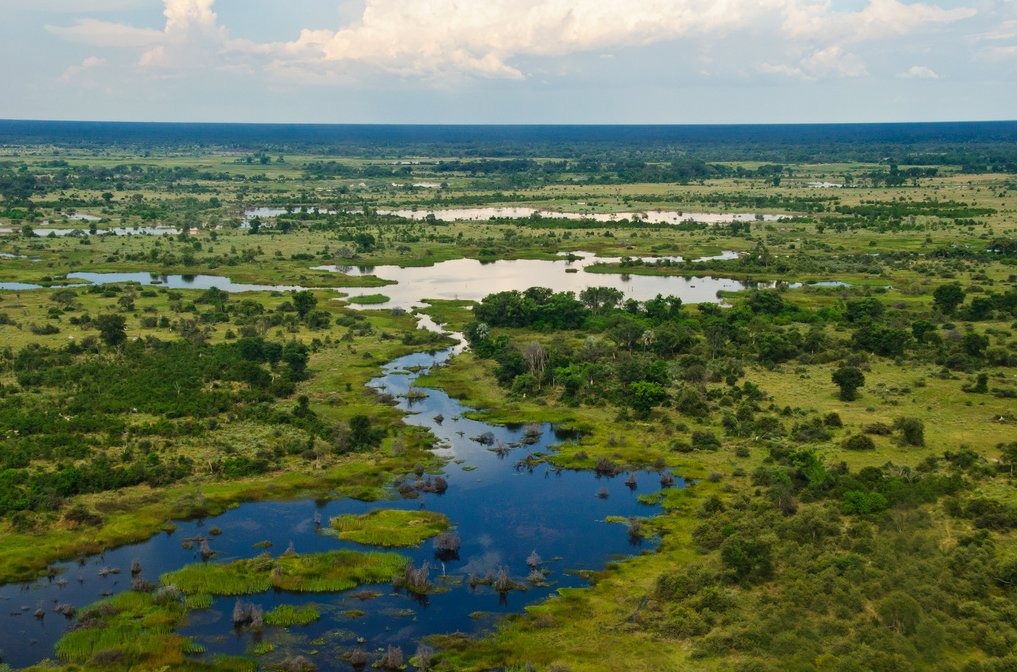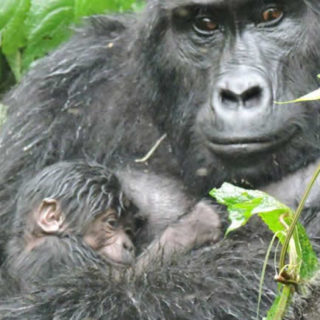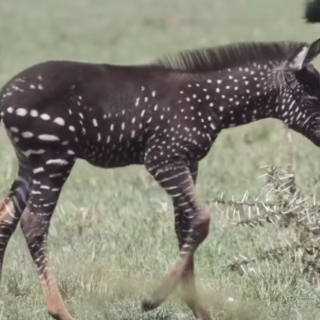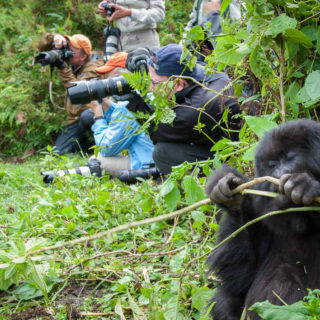The Okavango Delta in Angola a great home for the ‘Big Five’ in Africa
The name ‘Big Five’ originated from harsh time in Africa’s history, due to the difficulty of tracking down lions, elephants, leopards, rhinos and African buffaloes, thankfully, these masters of wildlife in Africa are now protected.
The Okavango Delta is known for being a home to all the big five with a natural habitat rich enough to support the Big Five.
The Okavango River originates in Angola locally known as the Cubango River, it is the fourth longest river on the continent, wends its way through Namibia, while flowing to reach the ocean, it gets caught up in the grasslands and swamps of the Okavango Delta hence creating heaven on earth for thousands of mammals, birds and fish.
The African Buffalo
Don’t even think about trying to corner this very dangerous and unpredictable monster that can weigh a massive 700kg, there will be very little left of you! Leave them alone and you will not fall prey to their sometimes sneaky attempts of ambushing man, keeping clear is the best way to enjoy the general placidness of this awesome mammal.
Lion’s unfortunately love Buffalo meat but, they also run the risk of being killed by a Buffalo in revenge for others being killed.
Leopard
This is Powerful enough to carry even a young giraffe high into the treetops, seeing a leopard lounging around on trees completely at ease with the world around them is a way of life for these graceful creatures, while they also get to protect their prey from greedy hyenas or lions that show a lot of interest in their meal, and being the strongest climber among the big cat species, this ensures that a leopard does not share it meal
Seeing a leopard can be tough because they are solitary nocturnal creatures who tend to avoid the heat during the day, which makes them the hardest of the Big Five to spot, but when you do, it is an unforgettable experience. Believe it or not, Leopards are the only member of the cat family that a superb swimmer.
Lions
African lions are the most social of all the big cats in Africa, and these can number up to 15 lions living in organized social groups. Part of this organized groups means that when there has been a kill, the male lions get to eat first, although it is the females who do the hunting, it is their reward for protecting the territory while the females are out hunting.
African Elephant
African elephants have a muscular trunk that serves as a hand, nose, extra foot, tool for gathering food and a signaling device and this is the largest living land mammal, with around 6 tons in weight. The biggest can easily reach over 3 metres in height.
African elephants have the capability to communicate across vast distances of up to 5 miles, at the lowest frequency that human ears are unable to pick up a sound. The African elephant is another of the Big Five facing dwindling numbers due to poaching and killings.
Rhino
Having been hunted to near extinction, the Rhino Trust and many other organizations involved in saving these primitive looking mammals, have brought the population of just a few thousand in the early 1990’s to double its population since then as a result of very strategic interventions.
It is a profound experience to spot one of these historic mammals thriving in areas such as the Okavango Delta.
Their hearing and sense of smell is exceptional, even if their vision is poor enough to lead them into attacking the odd tree or rock by mistake.
If you haven’t brought enough sunblock with you, you can always try the Rhino way soak in mud for a couple of hours and the sun beating down on you along with the park little flying monsters will find it difficult to get through.
Anyone visiting Africa or living in these beautiful lands owes everything they can do to make sure that theirs is more than just a footnote in history, leave a mark on your African adventure by getting involved, no matter how small a contribution it may be, in saving our beautiful African Big Five for future generations to enjoy this spectacular natural surroundings.





